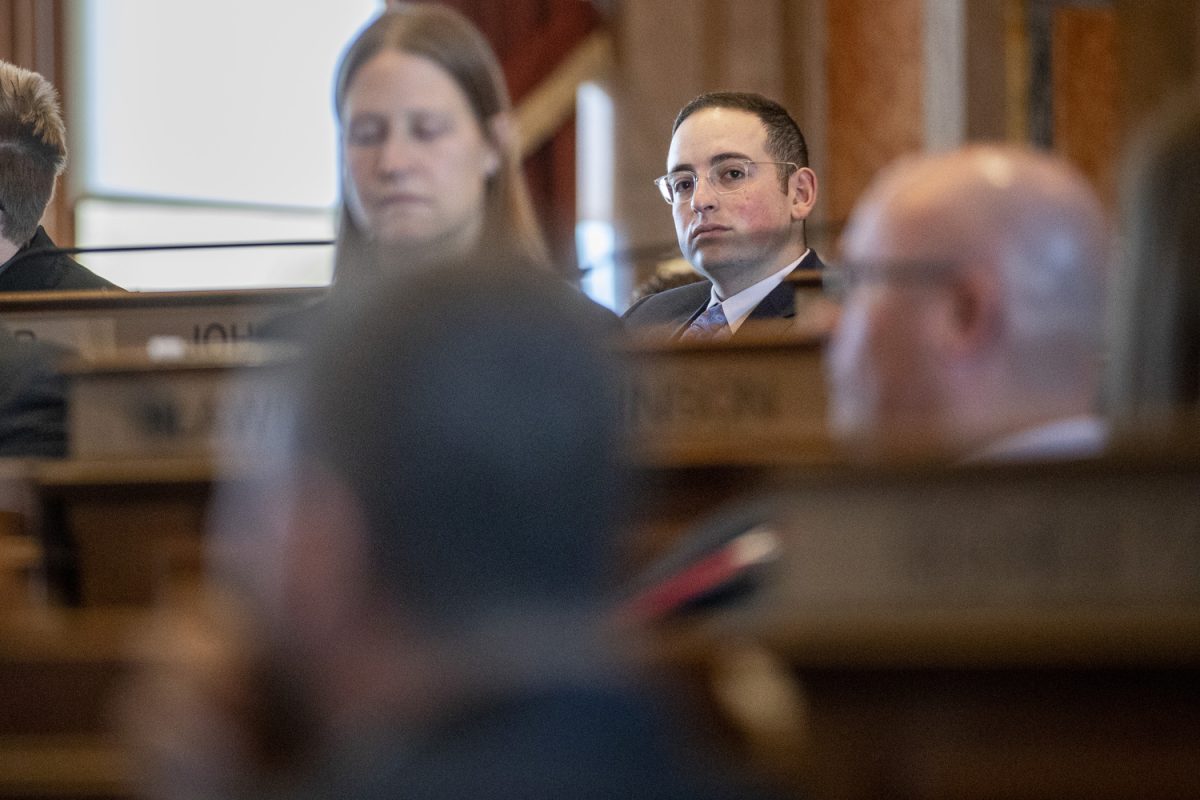Iowa City area lawmakers pin child care costs, a cellphone ban in classrooms, and education funding as a few of their priorities for the 2025 legislative session.
As Republicans hold a supermajority and a trifecta, Iowa City area Democratic legislative leaders aim to work across the aisle to pass these priorities.
Iowa Sen. Janice Weiner, D-Iowa City, who was selected in November to lead Senate Democrats in the 2025 legislative session, hopes all parties can work together across the board and expand opportunities for individual Iowans.
“I’m hoping we can expand pre-K,” Weiner said. “I don’t know what that’s going to look like, but I’d love to make it universal.”
Weiner emphasized the need for a full academic day for three and four year olds to attend pre-K, citing how important it is for education to begin early in children.
“Three, four hour pre-K just doesn’t cut it for most parents, because you can’t work a full day and then somehow go back and pick your kid up after three hours,” she said.
During her annual Condition of the State address on Tuesday evening, Iowa Gov. Kim Reynolds announced a pilot program for childcare wage workers statewide. With the program, local community members are invited to donate to a fund to raise wages for child care workers without raising fees for the families.
The governor also said she is looking to transition child care centers to residential property tax rates and providing grants that allow preschool students to attend school for full days rather than half, alleviating stress for parents of young children.
Weiner also said she is looking forward to “getting opioid settlement money out the door,” referencing the 2022 settlement by the Iowa Attorney General’s office for $345 million dollars to abate the opioid crisis in Iowa through prevention and treatment.
“That’s been a personal passion of mine,” Weiner said. “It’s very frustrating that it didn’t make it out at the legislature two years in a row.”
Iowa Rep. Elinor Levin, D-Iowa City, has chosen to focus heavily on issues concerning public education and veterans affairs.
“I’m kind of always keeping an eye on what’s going to make Iowa a place where people want to and can see building a life for themselves,” Levin said.
One such public education issue Levin foresees being in conversation during the 2025 session is a cellphone ban during instructional time in public schools across the state. Iowa City Community School District became one of several schools in the state to pass limitations on personal devices last month.
Reynolds said during her annual address on Tuesday evening that one of her top priorities during this session is mandating school districts ban cellphone use during “instructional time” at a minimum.
“As someone who has been a school teacher and worked in schools, I don’t love the idea of state policy overriding our local school boards,” Levin said about cellphone bans. “That being said, I do think that phones in school are a big issue, and maybe at least having a conversation about it and looking at setting a floor or some sort of policy standard that functions as a minimum is not the worst idea.”
Levin is also looking forward to stepping into a new role as the highest ranking Democrat on the House Government Oversight Committee.
Iowa Rep. Adam Zabner, D-Iowa City, said he is going to focus on addressing the rising costs of tuition, funding public education, and fighting for reproductive freedom.
“One thing that really concerns me is the attack we’ve seen on public universities, like the University of Iowa, and academic freedom,” Zabner said. “It’s really important to me that Iowa students and professors be able to express themselves and learn and contribute to our community.”
During the 2024 legislative session, diversity, equity, and inclusion programs at all three of Iowa’s public universities underwent major reforms. Reynolds signed SF2435 into law in May, effectively prohibiting DEI offices at the Board of Regents-controlled universities.
Iowa Sen. Zach Wahls, D-Coralville, who sits on the Education Budget Appropriations Committee, also expressed wanting to make changes to the recent DEI reforms.
“Higher education is top priority,” Wahls said. “We’re seeing some pretty radical attacks coming from Republicans, and so I think it’s important to push back on the worst of what we’re seeing — mostly from House Republicans, not Senate Republicans — and make sure that our universities continue to remain inclusive.”
Wahls said he wants to push affordable housing, expansion of paid family leave, lowering the cost of child care services, and working with Republicans on proposed legislation preventing non-citizens from voting.
Iowa Republicans have supported legislation introduced by Iowa Secretary of State Paul Pate following the 2024 general election, in which Pate’s office suspected more than 2,000 unregistered voters attempting to cast a ballot.
“As Republicans put this legislation forward and work on it, I think Democrats should be willing to look at these proposals and figure out if there are ways where we can work together in a bipartisan way,” Wahls said. “We can only do that if these laws are protecting the right to vote rather than restricting it.”



